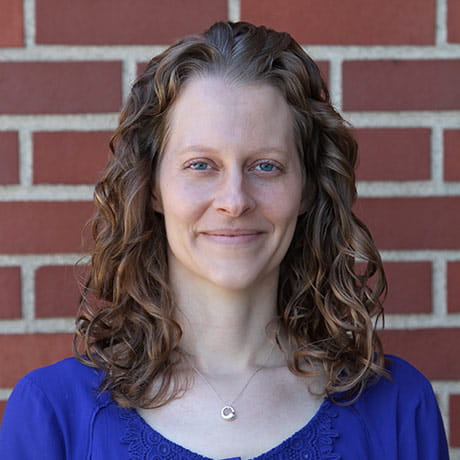
CATALYST postdoc contributes to patient portal research through co-authorship of articles
By Tyler Griesenbrock
CATALYST scientific editor
Published June 25, 2019

Dr. Sarah MacEwan, a postdoctoral researcher with CATALYST – the Center for the Advancement of Team Science, Analytics, and Systems Thinking in Health Services and Implementation Science Research – came to The Ohio State University seeking a new direction.
By her account, she’s found it.
“I was looking to transition from a bench scientist position to interacting more with the human side of health care,” Dr. MacEwan said. “And I came across the CATALYST group and was really impressed with the people, the research they were doing, and how much they cared about their research and each other. There was so much opportunity to be a part of the projects that they had going on.”
Before joining Ohio State, Dr. MacEwan’s work focused on the pre-clinical application of biomaterials to address challenges in oncology and immunology. She earned a PhD in Biomedical Engineering from Duke University and conducted postdoctoral research in Molecular Engineering at the University of Chicago.
Now, much of her work revolves around the use of patient portals, such as Epic Systems’ MyChart and MyChart Bedside, in use at Ohio State’s Wexner Medical Center. These portals allow patients to access information about their care, but their effect on patients and their health care providers are still under investigation.
“I’ve learned qualitative methods of analyzing the interviews that we do with both patients and care team members to understand their perspectives on using patient portals, both in hospital settings and outside of the hospital,” Dr. MacEwan said. “I’ve been really fortunate to be part of teams that have co-authored papers in this field.”
Dr. MacEwan has been credited on several recent papers: “Empowering Patients during Hospitalization: Perspectives on Inpatient Portal Use,” in Applied Clinical Informatics, featured interviews with patients and care team members about the role of patient portals in inpatient care; “Patient Portal Messaging for Care Coordination: A Qualitative Study of Perspectives of Experienced Users with Chronic Conditions,” in BMC Family Practice, employed focus groups to examine how secure messaging through portals could be used in the context of chronic conditions; and “Improving Acceptance of Inpatient Portals: Patients' and Care Team Members' Perspectives,” which will appear in Telemedicine and e-Health, looks at the perceived usefulness and ease of use of inpatient portals.
“Being new to this field, it’s been really exciting to learn the research methods,” she said. “Learning more about the qualitative methods and quantitative methods within our group, being part of the grant writing process, and coming up with project ideas from their beginning to their execution are really exciting.”
For more information about CATALYST, visit go.osu.edu/catalyst. For details about opportunities as a post-doctoral researcher or in another position with CATALYST, visit the Ohio State Wexner Medical Center’s careers page.
